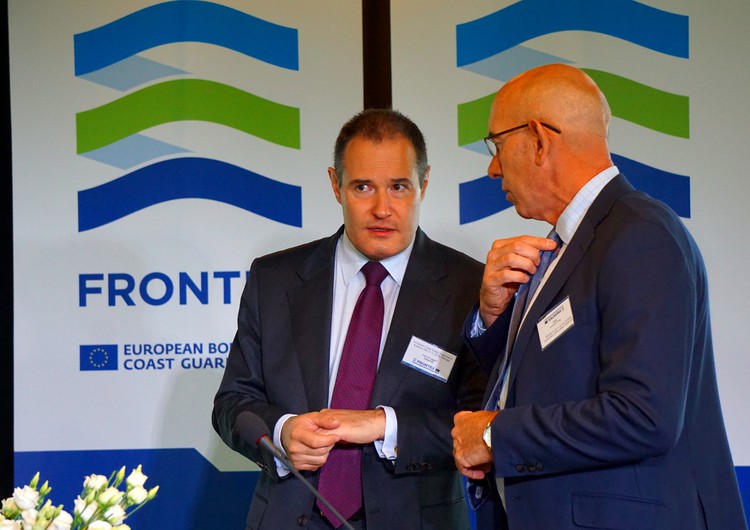Frontex, the European Border and Coast Guard Agency, is hosting the first European Coast Guard Cooperation Network Meeting in Warsaw on 8-10 November to highlight the new agency’s expanded role in the maritime arena.
News
Frontex hosts 1st European Coast Guard Cooperation Network Meeting
2016-11-08

The gathering brings together representatives of more than 40 different national authorities of EU member states, including coast guards, navies, border police, customs and maritime authorities. Also present are representatives of various EU agencies, other EU bodies and three international organisations (UNHCR, Interpol and NATO), as well as officials from eight non-EU countries, including the United States, Australia, Libya and Morocco.
Frontex Executive Director Fabrice Leggeri was joined by the European Fisheries Control Agency (EFCA) Executive Director Pascal Savouret at the opening of the European Coast Guard Cooperation Network Meeting. European Maritime Safety Agency (EMSA) Executive Director Markku Mylly appeared via a video message.
“Our new mandate puts Frontex at the centre of EU’s efforts to expand European and international cooperation on coast guard functions. Border control, of course, is one of the key coast guard functions, but they also include things like maritime safety, security, search and rescue, fisheries control, customs, law enforcement and environmental protection,” said Frontex Executive Director Fabrice Leggeri.
Maritime operations account for the largest share of the budget of Frontex, the European Border and Coast Guard. Spending on them already surpasses EUR 100 million annually, almost four times the amount Frontex had spent on sea operations just two years earlier.
Joint operations, such as Triton in Italy and Poseidon in Greece, make Frontex an ideal platform to develop cooperation between national law enforcement, customs and other authorities operating in the maritime domain and European agencies.
Vessels and aircraft deployed by Frontex cooperate with the EMSA to spot sea pollution and other possible violations of maritime conventions. Alongside EFCA, Frontex collects and shares information to be used to detect illegal fishing.